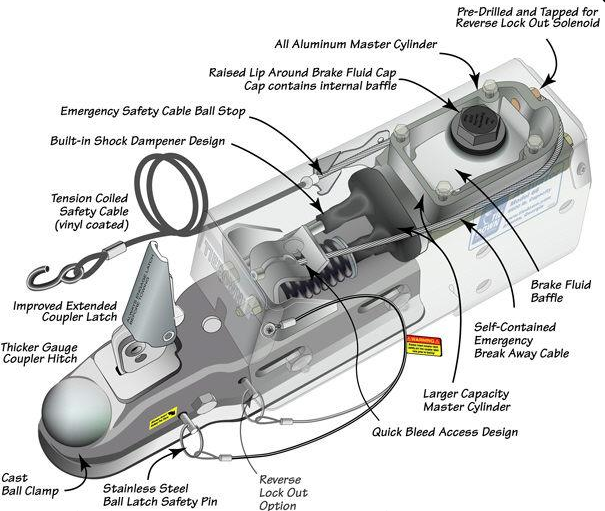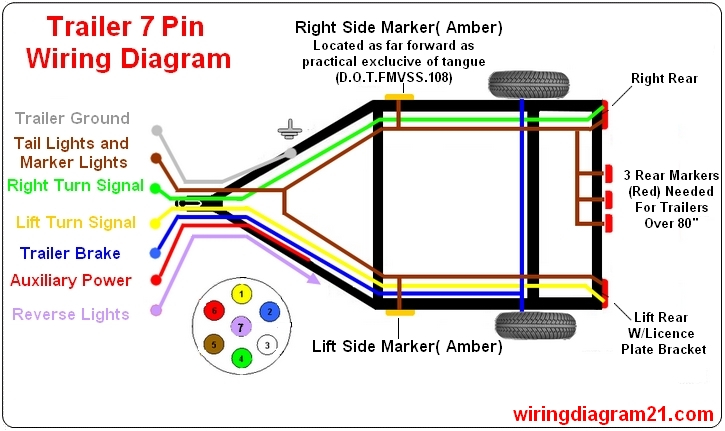Upgrade Your Towing: Adding Electric Brakes to Your Trailer
Ever felt your tow vehicle struggle a bit too much when braking with a loaded trailer? Or perhaps you've experienced that unsettling push from behind when descending a steep incline? If so, you've likely encountered the limitations of relying solely on your vehicle's braking system. Upgrading to electric trailer brakes can significantly improve your towing safety and control, making for a smoother, more confident towing experience.
Towing safety is paramount. A trailer without its own braking system can put excessive strain on your tow vehicle's brakes, leading to premature wear and tear, increased stopping distances, and potentially dangerous sway. Electric brakes provide an independent braking system for your trailer, distributing the braking force more evenly and enhancing overall control. This article explores the ins and outs of adding electric brakes to your trailer, empowering you to make an informed decision about this essential safety upgrade.
Historically, trailers often relied on surge brakes, a hydraulic system activated by the momentum of the trailer pushing against the tow vehicle during braking. While surge brakes are still used, electric brakes offer more precise control and smoother braking action. The growing popularity of electric brakes reflects a broader trend towards enhanced safety and control in towing.
The fundamental principle behind electric brakes is simple yet effective: an electrical signal from the tow vehicle activates magnets within the brake drums of the trailer, engaging the brakes. This synchronized braking action reduces the burden on the tow vehicle's brakes, providing a safer and more controlled stopping experience. The ability to adjust the braking force applied to the trailer is a significant advantage of electric brakes.
Understanding the process of adding electric brakes can seem daunting, but breaking it down into manageable steps clarifies the process. The first step is determining the compatibility of your trailer and tow vehicle. Your trailer will need a brake axle, and your tow vehicle will require a brake controller. Professional installation is often recommended, especially for those unfamiliar with electrical systems. However, with the right tools and guidance, a DIY installation is possible.
Benefits of Electric Trailer Brakes:
1. Enhanced Safety: Electric brakes reduce stopping distances, especially when towing heavy loads, minimizing the risk of accidents. For example, imagine towing a boat down a steep hill. With electric brakes, you'll have greater control and stopping power, preventing the trailer from pushing the tow vehicle.
2. Reduced Wear and Tear: By distributing the braking force, electric brakes lessen the strain on your tow vehicle's brakes, prolonging their lifespan and saving you money on maintenance. This is particularly beneficial for frequent towers or those towing heavy loads.
3. Improved Control: Electric brakes offer smoother and more predictable braking, minimizing trailer sway and enhancing overall control, particularly in challenging conditions like slippery roads or strong winds.
Action Plan for Adding Electric Brakes:
1. Assessment: Determine the compatibility of your trailer and tow vehicle. 2. Acquisition: Purchase the necessary components, including a brake controller, wiring harness, and brake assemblies. 3. Installation: Install the components, either professionally or DIY, ensuring proper wiring and connections. 4. Testing: Thoroughly test the brake system to ensure proper functionality.
Advantages and Disadvantages of Electric Trailer Brakes
| Advantages | Disadvantages |
|---|---|
| Increased Safety | Higher initial cost |
| Reduced Wear on Tow Vehicle | More complex installation |
| Better Control and Stability | Requires maintenance and occasional repairs |
| Smoother Braking | Potential for electrical issues |
FAQs:
1. Can I install electric brakes myself? Yes, with the right tools and knowledge, a DIY installation is possible. 2. What is a brake controller? A brake controller is a device installed in the tow vehicle that regulates the power sent to the trailer brakes. 3. How much does it cost to add electric brakes? The cost varies depending on the trailer size and components, typically ranging from a few hundred to over a thousand dollars. 4. Do I need a special wiring harness? Yes, a specific wiring harness is required to connect the trailer brakes to the tow vehicle. 5. How do I maintain electric brakes? Regular inspections and adjustments are crucial for maintaining optimal performance. 6. What are some common problems with electric brakes? Wiring issues, corroded connections, and faulty magnets are some common issues. 7. Can I add electric brakes to any trailer? Most trailers can be retrofitted with electric brakes, but some modifications may be necessary. 8. Where can I find professional installation services? Many RV dealerships, trailer repair shops, and automotive service centers offer electric brake installation services.
Conclusion:
Adding electric brakes to your trailer is a significant investment in safety and control. While the initial cost may seem substantial, the long-term benefits of reduced wear and tear on your tow vehicle, enhanced safety, and improved towing experience outweigh the expense. Consider the size and weight of your trailer, the frequency of your towing activities, and your budget when making your decision. By prioritizing safety and understanding the process, you can equip your trailer with a braking system that provides peace of mind and confident control on the road. Properly functioning trailer brakes are not just a good idea; they're essential for safe and responsible towing. Upgrade your towing experience and prioritize safety by considering the addition of electric brakes to your trailer. The benefits extend beyond your own peace of mind to the safety of everyone sharing the road with you.
The pink and white ombre acrylic nails obsession are you in
Unleash your inner saiyan the power of imagenes de dragon ball z para colorear
Spice up your drive exploring toyota rav4 paint hues














